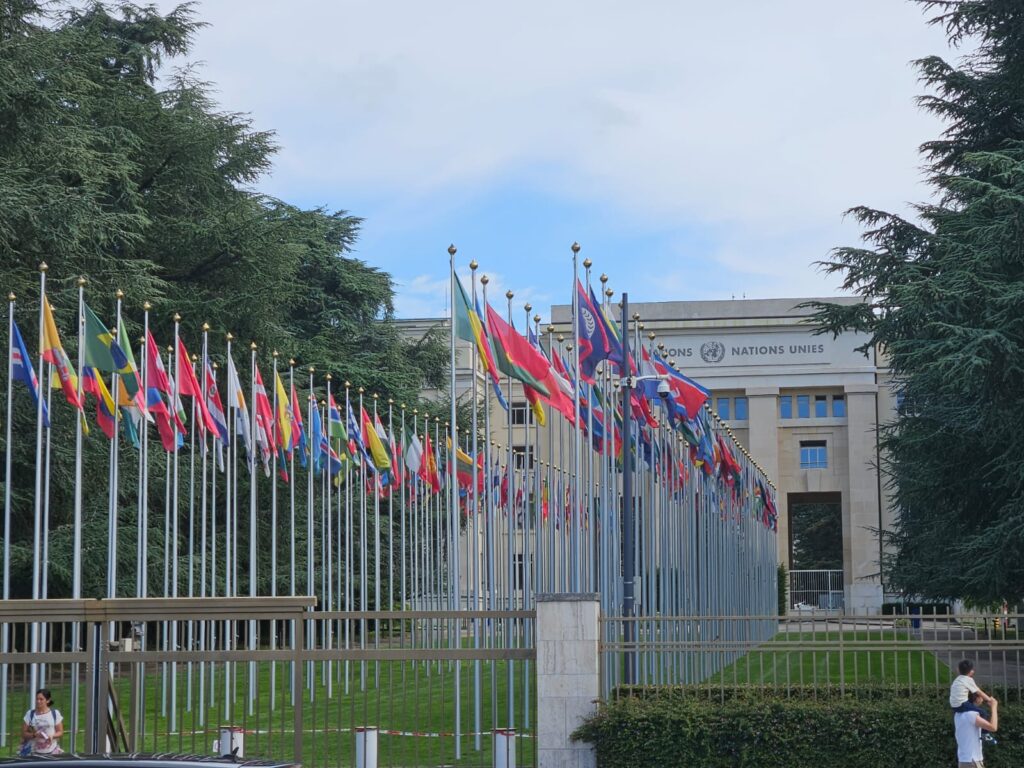13 October 2023 WASHINGTON DC | Jubilee Campaign welcomes the UN Human Rights Council Resolution on the question of the death penalty which includes a new operational paragraph calling on states which maintain the death penalty to reduce the offences for which the death penalty may be imposed and to limit them strictly to the “most serious crimes.”
Jubilee Campaign joined the informal consultations [discussions on the language of the resolution] led by the core group of Switzerland, Belgium, Benin, Costa Rica, France, Mexico, Mongolia and the Republic of Moldova in Geneva during the Human Rights Council’s 54th session. We are very pleased that the resolution adopted language which have a positive impact for victims of anti-apostasy and anti-blasphemy laws.
At least 11 countries continue maintain the death penalty for apostasy and/or blasphemy which Jubilee Campaign together with a coalition of organisations have been loudly condemning and urging for a change.
The UN Human Rights Council resolution is significant since it includes language that was first introduced in 2017, emphasising that “under no circumstances” can the death penalty be applied for specific forms of conduct such as apostasy or blasphemy. This language has been consistently incorporated in the biennial resolution in its preambular paragraph since 2017. We welcome the introduction of the new operational paragraph [the recommendation section of the resolution] in the 2023 death penalty resolution which includes added emphasis, calling on states to take “active steps” to reduce the number of offences for which the death penalty may be imposed and to limit them strictly to “the most serious crimes,” [the definition described in the preambular paragraphs as “under no circumstances” to include apostasy or blasphemy etc]. We hope this will encourage retentionist states to take bold and necessary steps to amend their criminal codes to abolish the death penalty criminalisation for apostasy and blasphemy. This welcome language in the operational paragraph in the 2023 question of the death penalty resolution was more specifically incorporated in the 2017 Human Rights Council Question of the death penalty resolution, but has been absent in the last two resolutions [2019 and 2021], urging states that have not yet abolished the death penalty to “ensure that it [the death penalty] is not imposed as a sanction for specific forms of conduct such as apostasy, blasphemy, adultery and consensual same-sex relations.” We hope that states will recognise the importance of reducing the death penalty sanction and remove it unequivocally for apostasy, blasphemy, adultery and consensual same-sex relations even though the operational paragraph does not name these situations outright as it has in 2017.
Jubilee Campaign are thankful to the core group who worked on the language of the resolution and had to engage in robust diplomatic discussions with several states to ensure that the spirit and aims of the resolution were not be jeopardised.
In addition to the significant operational paragraph, Jubilee Campaign also welcomes the specific language in the resolution which works to protect the rights of those who face the sanction of the death penalty. As the Special Rapporteur on extrajudicial killings Morris Tidball-Binz has observed there has been a research and advocacy gap in identifying how certain existing capital offences target specific minorities, such as those criminalising blasphemy, stating that “research and advocacy on the death penalty tend to treat individuals on death row as a homogenous group and have paid little attention to how certain existing capital offences, same-sex sexual acts and blasphemy, target specific minorities.” [Report of the Special Rapporteur of the Human Rights Council on extrajudicial, summary or arbitrary executions, 3 August 2021, A/76/264. para 57]. The Islamic Republic of Iran recently executed two men for blasphemy and apostasy in complete violation of international law because they were exMuslims but even other offences are used to charge people for exercising their freedom of thought, conscience, religion or belief. For example the charge of adultery is used to sentence women to death for marrying outside their faith. The resolution includes important language for the first time in its preambular paragraphs stressing that, “convictions resulting in the death penalty based in information obtained through torture or cruel, inhuman or degrading treatment of interrogated persons violate article 15 of the Convention against Torture…” Jubilee Campaign welcomes especially the operational paragraph number 6 which calls on “all States to ensure that all legal proceedings […] and particularly those relating to capital offences, uphold the rights and are consistent with the minimum procedural guarantees contained in article 14 of the International Covenant on Civil and Political Rights (ICCPR),” which include:
- The right to apply for pardon or commutation- ensuring procedural guarantees are not discriminatory in nature along with other safeguards.
- The right to have the conviction or sentence reviewed by a higher tribunal – and to investigate all allegations of evidence being procured by torture or ill-treatment.
An additional new operational paragraph calls upon States to ensure that, “all accused persons, in particular poor and economically vulnerable persons and persons with disabilities, can exercise their rights relating to equal access to justice,” including the right to “adequate, qualified and effective legal representation at every stage of civil and criminal proceedings in cases of capital punishment” through effective legal assistance. Another operational paragraph calls on the Secretary General to in his next report on the capital punishment to report on “the consequences arising at various stages of the imposition and application of the death penalty on the enjoyment of human rights of persons facing the death penalty and other affected persons.”
These are relevant to several cases of individuals facing the death penalty which Jubilee Campaign is monitoring and also providing legal aid to including Anwar Kenneth in Pakistan and previously for Shafqat Emmanuel – where the authorities depended on his confession procured through torture.

